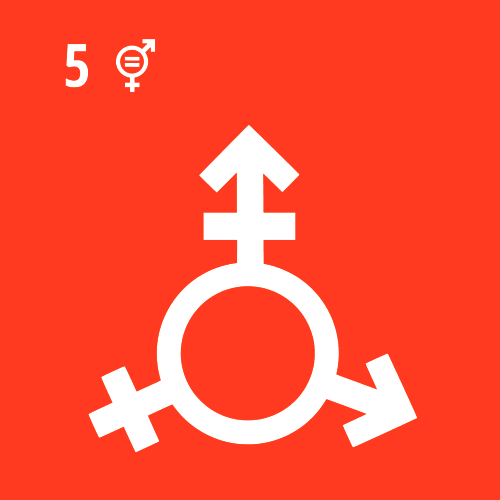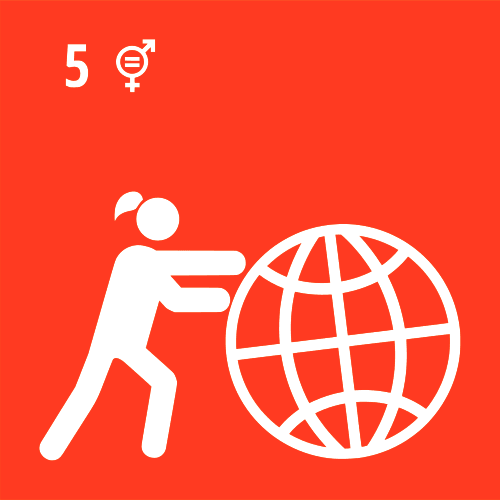Achieve gender equality and empower all women and girls
Gender equality is a fundamental human right and it is a transversal issue crucial to build a healthy society, leave the poverty cycle, and ensure quality education for all. Gender equality means that everyone is equally valued and that their needs, goals, and behaviours are considered equally. Men and women are different in their biology, but everyone should be free to develop, make their choices, and participate in the decision-making process in their community.
In the last decades, some progress has been made to reduce gender inequalities. However women still face barriers in accessing decent work, basic education, and health care. They are victims of violence and discrimination and they are under-represented in decision-making processes.
To overcome these barriers, education, employment, empowerment, and leadership are crucial. Education allows access to knowledge, skills, and abilities which in turn empower girls and young women to access the labour market and raise women's participation and leadership in society. Women involved in political and economic decision-making will contribute with different perspectives and will allow for more informed and inclusive decisions.
Access to education is still not a reality for all. It is a global issue with women being the most affected. Two-thirds of illiterate people are women (UN, 2019), thus quality education, including vocational training, requires a special focus on girls and young women education and training to help them to achieve a better personal, social and professional future.










